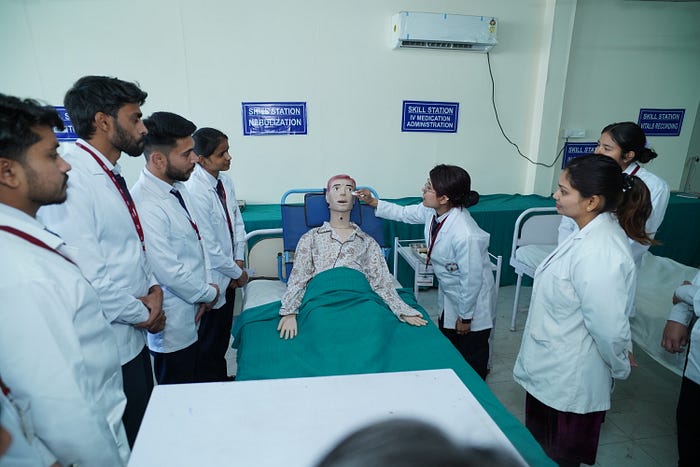Key Skills Every Hospital Administration Bachelor’s Student Should Develop

Introduction
Ever wondered what it takes to run a hospital smoothly? It’s a bit like juggling flaming swords while riding a unicycle. Hospital administrators are the unsung heroes behind the scenes, ensuring everything from patient care to staffing runs like a well-oiled machine. If you’re pursuing a Bachelor’s in Hospital Administration, there are key skills you need to master to excel in this dynamic field.
Communication Skills
Verbal Communication
Being able to articulate your thoughts clearly and effectively is crucial. Whether you’re discussing patient care with doctors or addressing a room full of staff, your verbal communication skills can make or break a situation.
Written Communication
From drafting emails to writing reports, your written communication needs to be top-notch. Clarity, conciseness, and correctness are the three Cs you should always keep in mind.
Active Listening
Communication isn’t just about talking; it’s also about listening. Active listening involves paying full attention, understanding, responding, and remembering what the other person is saying. This is key in resolving issues and improving patient care.
Leadership Abilities
Decision Making
Hospital administrators often have to make tough calls. Being able to weigh the pros and cons, consider the impact, and make informed decisions quickly is a vital skill.
Conflict Resolution
Disputes are inevitable in any workplace. As a leader, you need to be adept at resolving conflicts in a way that’s fair and maintains a positive work environment.
Team Management
Managing a diverse team of healthcare professionals requires patience, understanding, and the ability to motivate and inspire others.
Organizational Skills
Time Management
With countless tasks and responsibilities, managing your time effectively is essential. Prioritizing tasks, setting deadlines, and avoiding procrastination can help you stay on top of your workload.
Task Prioritization
Not all tasks are created equal. Knowing which tasks to tackle first based on urgency and importance can help streamline operations and improve efficiency.
Multi-tasking
The ability to handle multiple tasks simultaneously without compromising on quality is a skill that will serve you well in hospital administration.
Analytical Skills
Data Analysis
In the age of big data, being able to analyze and interpret data is invaluable. Data-driven decisions can lead to better outcomes and improved operational efficiency.
Critical Thinking
Critical thinking involves analyzing situations, understanding their context, and coming up with well-thought-out solutions. It’s about thinking on your feet and being proactive rather than reactive.
Problem Solving
Problems are bound to arise, but how you handle them sets you apart. Effective problem-solving requires a logical approach and the ability to think outside the box.
Technical Proficiency
Health Information Systems
Understanding and managing health information systems is crucial for maintaining patient records, scheduling, and other administrative tasks.
Software Proficiency
Familiarity with various software applications used in hospital management can streamline operations and improve productivity.
Cybersecurity Awareness
With the increasing threat of cyberattacks, being aware of and implementing cybersecurity measures is essential to protect sensitive patient information.
Financial Acumen
Budgeting
Managing budgets effectively ensures that the hospital operates within its means and resources are allocated appropriately.
Financial Reporting
Accurate financial reporting is key to maintaining transparency and accountability within the organization.
Cost Control
Keeping costs under control without compromising on the quality of care is a delicate balance that requires strong financial acumen.
Regulatory Knowledge
Healthcare Laws
Staying abreast of healthcare laws and regulations ensures that the hospital complies with legal requirements and avoids penalties.
Compliance
Ensuring compliance with regulatory standards protects the hospital from legal issues and enhances its reputation.
Risk Management
Identifying, assessing, and mitigating risks is crucial for maintaining a safe and secure environment for patients and staff.
Adaptability
Flexibility
The ability to adapt to changing circumstances and embrace new challenges is essential in the ever-evolving field of healthcare.
Stress Management
Healthcare can be a high-stress environment. Effective stress management techniques can help you stay calm and focused under pressure.
Innovation
Being open to innovative ideas and approaches can lead to improvements in hospital operations and patient care.
Cultural Competence
Diversity Awareness
Understanding and appreciating diversity helps create an inclusive environment where everyone feels valued.
Language Skills
Being proficient in multiple languages can enhance communication with patients from diverse backgrounds.
Inclusive Practices
Implementing inclusive practices ensures that the hospital provides equitable care to all patients.
Continuous Learning
Professional Development
Engaging in professional development opportunities keeps your skills sharp and prepares you for future challenges.
Staying Updated with Trends
Staying informed about the latest trends and developments in healthcare ensures that the hospital remains at the forefront of the industry.
Certification Programs
Pursuing certification programs can enhance your credentials and demonstrate your commitment to excellence.
Customer Service Orientation
Patient Satisfaction
Patient satisfaction is a key indicator of the quality of care provided by the hospital. Focusing on patient satisfaction can lead to better outcomes and a positive reputation.
Quality of Care
Delivering high-quality care is the primary goal of any hospital. Ensuring that all aspects of care meet high standards is crucial.
Service Excellence
Striving for service excellence involves going above and beyond to meet the needs of patients and their families.
Conclusion
Mastering these skills can set you apart as a highly effective hospital administrator. Each skill contributes to the smooth operation of the hospital and the provision of high-quality care. By continuously developing these skills, you can ensure that you’re well-prepared to tackle the challenges and opportunities that come your way in the field of hospital administration. Pursuing a bachelor in hospital administration in Dehradun can equip you with these essential skills, making you a valuable asset in the healthcare industry.


Comments
Post a Comment